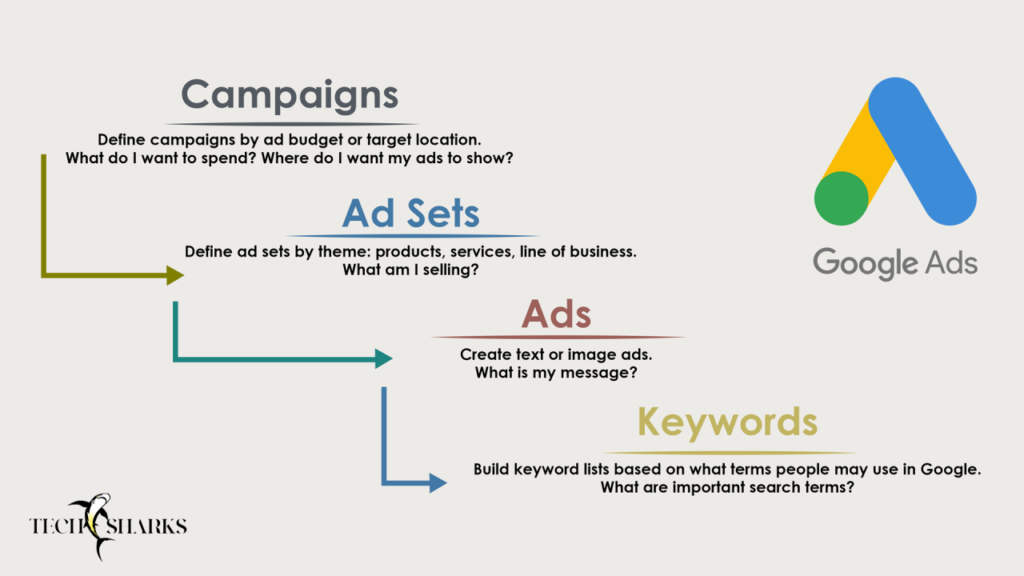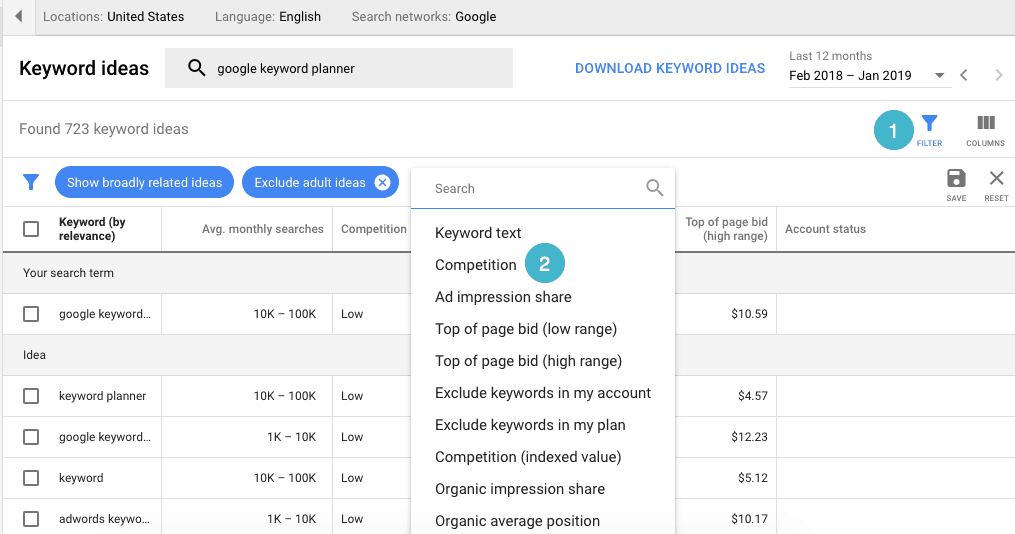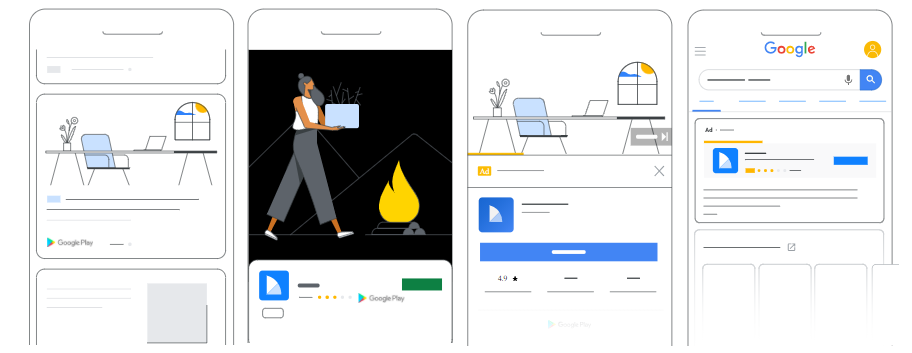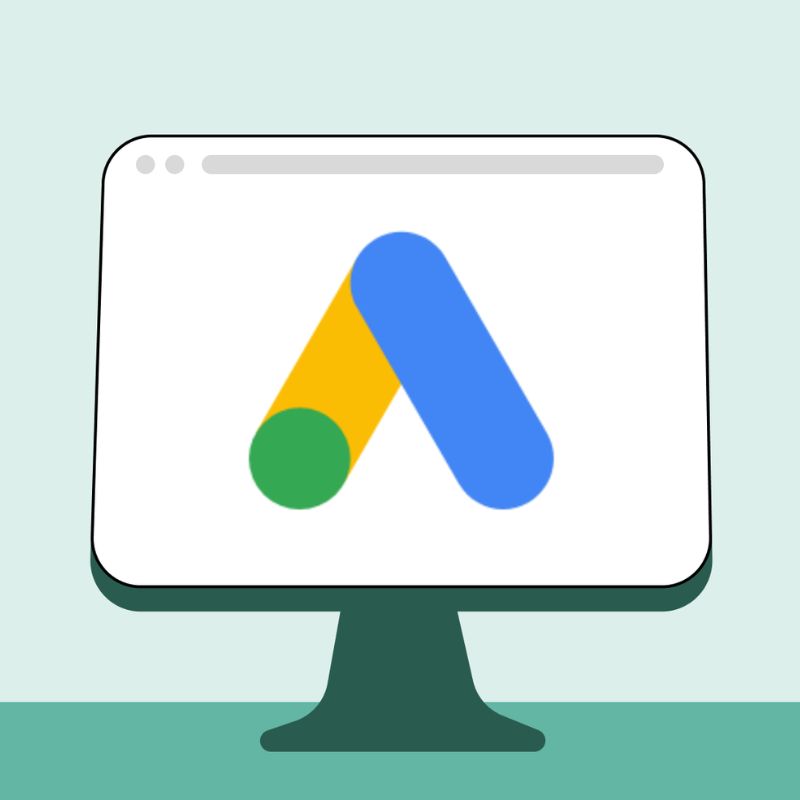PPC advertising, also known as pay-per-click advertising, is a vital component of digital marketing strategies. It helps drive targeted traffic from search engines and social media platforms like Facebook ads and Bing ads. This beginner’s guide provides an overview of PPC advertising and its significance for businesses in digital marketing. It covers a brief historical context and the importance of targeted traffic, search engine marketing, and Bing ads.
Understanding PPC ads is crucial for advertisers in digital marketing aiming to reach their target audience and boost sales by utilizing search engine platforms to convert potential customers. By directing traffic to specific products or landing pages, PPC marketing allows businesses to enhance their online visibility and generate leads effectively. This can also improve their search engine rankings and tracking of user behavior.
Understanding the Basics of PPC
How PPC Works
PPC, or pay-per-click, is an online advertising model used in digital marketing where advertisers pay a fee each time their ad is clicked, driving traffic to their business website and allowing for tracking of the ad’s performance. Essentially, PPC marketing is a way of buying visits to your site through successful PPC campaigns rather than attempting to “earn” those visits organically. It involves using PPC ads to improve ad rank.
Types of PPC Advertising Platforms

There are various types of PPC advertising platforms, including search advertising (like Google Ads), display advertising (banners and image ads on websites), social media advertising (Facebook, Instagram), and remarketing/retargeting ads that target users who have previously visited your website.
Benefits of Using PPC for Marketing

Source: LeadSquared
PPC offers several benefits for marketers. PPC marketing provides quick entry into the market, as ads can be launched swiftly once the campaign is set up. It allows for highly targeted marketing, enabling advertisers to reach specific demographics or audiences with successful PPC campaigns and PPC ads. Moreover, with PPC marketing, advertisers have control over their budget and can track the performance of their marketing campaigns in real time.
Setting Up Your First Google Ads Campaign

Source: Tech Sharks
Steps to Create a Google Ads Account
To start with PPC marketing, go to the Google Ads website and click on “Start Now.” Then, enter your email address and website URL to create an account. Next, follow the prompts to set up billing information and complete the account creation process for PPC ads and PPC marketing.
Setting Campaign Objectives and Goals
Once the PPC ads account is set up, define your advertising campaign’s objectives and goals. Whether it’s driving website traffic, increasing brand awareness, or generating leads, clearly outline what you aim to achieve with your ads. This step will guide the rest of your PPC ads campaign setup process.
Choosing the Right Campaign Settings
Selecting the right campaign settings is crucial for achieving optimal results with PPC ads. Choose between Search Network or Display Network based on where you want your ads to appear. Determine your target audience for PPC ads by specifying demographics, interests, and behaviors. Decide on a daily budget and bidding strategy for your PPC ads that align with your advertising goals.
Crafting Effective PPC Ads
Elements of a Successful PPC Ad
A successful PPC ad comprises a captivating headline, relevant keywords, and a clear call to action. The headline for your PPC ads should be attention-grabbing and directly related to the user’s search query.
Writing Compelling Ad Copy
Compelling PPC ad copy is an effective way to capture the audience’s attention. It should address the pain points of the target audience and highlight the unique selling proposition of the product or service in PPC ads. By using persuasive language and emphasizing benefits, advertisers can entice users to click on their ads.
Utilizing Ad Extensions for Better Performance
Ad extensions, such as location and callout extensions, enhance visibility and provide more reasons for users to engage with PPC ads. Location extensions display a company’s address, making it easier for potential customers to find them, while callout extensions allow businesses to showcase unique selling points such as “24/7 customer support” or “free shipping.”
Conducting PPC Keyword Research

Importance of Keyword Research in PPC
Thorough keyword research is crucial for a successful PPC advertising campaign. It helps advertisers understand the specific keywords potential customers are using to find products or services through ppc ads. By targeting these specific keywords, businesses can ensure their ads appear when users search for relevant terms.
Tools for Conducting Keyword Research
Several PPC ad tools are available to aid in conducting thorough keyword research. Platforms like Google Ads Keyword Planner, SEMrush, and Ahrefs offer valuable insights into search volume, competition, and related keywords. These tools enable advertisers to identify high-performing keywords that align with their target audience’s search behavior.
Strategies for Finding Relevant Keywords
To find relevant keywords, advertisers can start by brainstorming a list of initial keywords related to their products or services. They can then use keyword research tools to expand this list by discovering additional relevant terms and phrases. Moreover, analyzing competitors’ ad copy and identifying the keywords they are targeting can also provide valuable insights into relevant keywords.
Budgeting for PPC Campaigns

Determining Your Advertising Budget
Determining the advertising budget for PPC campaigns involves considering various factors such as campaign goals, industry competition, and target audience size. It’s crucial to set a realistic budget that aligns with the expected outcomes and allows for testing and optimization.
Cost Considerations for PPC Campaigns
When budgeting for PPC campaigns, it’s essential to factor in the cost per click (CPC), which is the amount an advertiser pays each time a user clicks on their ad. Understanding the maximum bid for keywords can help in estimating potential costs. For instance, if a keyword has a high maximum bid, it may require a higher budget to compete effectively.
Allocating Budget Across Different Campaigns
For effective campaign performance, allocating the budget across different campaigns should be based on their objectives and priorities. For example, allocating more budget to top-performing campaigns or those targeting high-value keywords can optimize overall results. Tracking campaign performance metrics like conversion rates and return on ad spend can guide budget allocation decisions.
Managing and Optimizing Your PPC Efforts

Monitoring Campaign Performance Metrics
Monitoring campaign performance metrics is crucial in understanding the effectiveness of PPC advertising. Metrics such as click-through rate (CTR), conversion rate, and cost per click (CPC) provide valuable insights into the performance of your ads.
Making Adjustments Based on Data Analysis
Analyzing the collected data allows for informed decision-making in optimizing PPC campaigns. By identifying underperforming keywords or ad copies, adjustments can be made to allocate budgets more effectively and improve overall campaign performance.
Implementing A/B Testing for Ads and Landing Pages
A/B testing involves creating variations of ads or landing pages to test which performs better. This method helps in identifying elements that resonate with the target audience, leading to improved conversion rates and better return on investment (ROI).
Monitoring campaign performance metrics enables marketers to gauge the impact of their efforts, guiding them in making informed decisions for optimization. By implementing A/B testing for ads and landing pages, digital marketers can refine their strategies based on real-time data analysis, contributing to enhanced online visibility and improved marketing strategy.
Measuring PPC Campaign Success
Key Performance Indicators for Measuring Success
Key performance indicators (KPIs) are essential metrics for evaluating the success of a PPC campaign. These include click-through rate (CTR), cost per click (CPC), and quality score. CTR measures the percentage of people who clicked on an ad after seeing it, while CPC indicates the cost an advertiser pays for each click on their ad.
Analyzing Conversion Rates and ROI
Analyzing conversion rates is crucial in determining the effectiveness of a PPC campaign. A high conversion rate signifies that the campaign is resonating with the target audience, leading to more leads or sales. Return on investment (ROI) measures the profitability of a campaign by comparing the amount spent on ads to the revenue generated.
Using Analytics Tools to Track Campaign Performance
Google Analytics is a powerful tool for tracking and analyzing PPC campaign performance. It provides valuable insights into website traffic, user behavior, and conversion data, enabling advertisers to make informed decisions about their campaigns. By leveraging Google Analytics, advertisers can gain a deeper understanding of their audience and optimize their campaigns accordingly.
Conclusion
Understanding the basics of PPC, setting up a Google Ads campaign, crafting effective ads, conducting keyword research, budgeting, managing, optimizing, and measuring campaign success are all essential components of a successful PPC strategy. By mastering these elements, beginners can lay a solid foundation for their future advertising efforts. Remember to continuously monitor and refine your campaigns based on performance data to drive better results. With dedication and attention to detail, even newcomers can achieve significant success in the world of PPC advertising.
Frequently Asked Questions
What is PPC advertising?
PPC advertising, or pay-per-click advertising, is a model of Internet marketing in which advertisers pay a fee each time one of their ads is clicked. It allows businesses to display ads for their products or services when users search for relevant terms.
How do I set up my first Google Ads campaign?
To set up your first Google Ads campaign, you need to create an account, define your campaign goals, choose the right campaign type, select your target audience and keywords, set your budget and bids, create compelling ad copy, and launch the campaign.
What are the key components of a successful PPC ad?
A successful PPC ad consists of a compelling headline, relevant keywords, clear and concise copy that communicates a value proposition, a strong call-to-action (CTA), and relevant ad extensions. It’s also important to ensure that the landing page aligns with the ad’s messaging.
How can I measure the success of my PPC campaigns?
You can measure the success of your PPC campaigns by tracking metrics such as click-through rate (CTR), conversion rate, cost per conversion/acquisition (CPA), return on ad spend (ROAS), and overall return on investment (ROI). Utilizing conversion tracking and Google Analytics can provide valuable insights.
Why is keyword research important for PPC advertising?
Keyword research is crucial for PPC advertising as it helps identify the terms and phrases potential customers are using to find products or services. By understanding these keywords, businesses can optimize their campaigns to target relevant audiences effectively.


